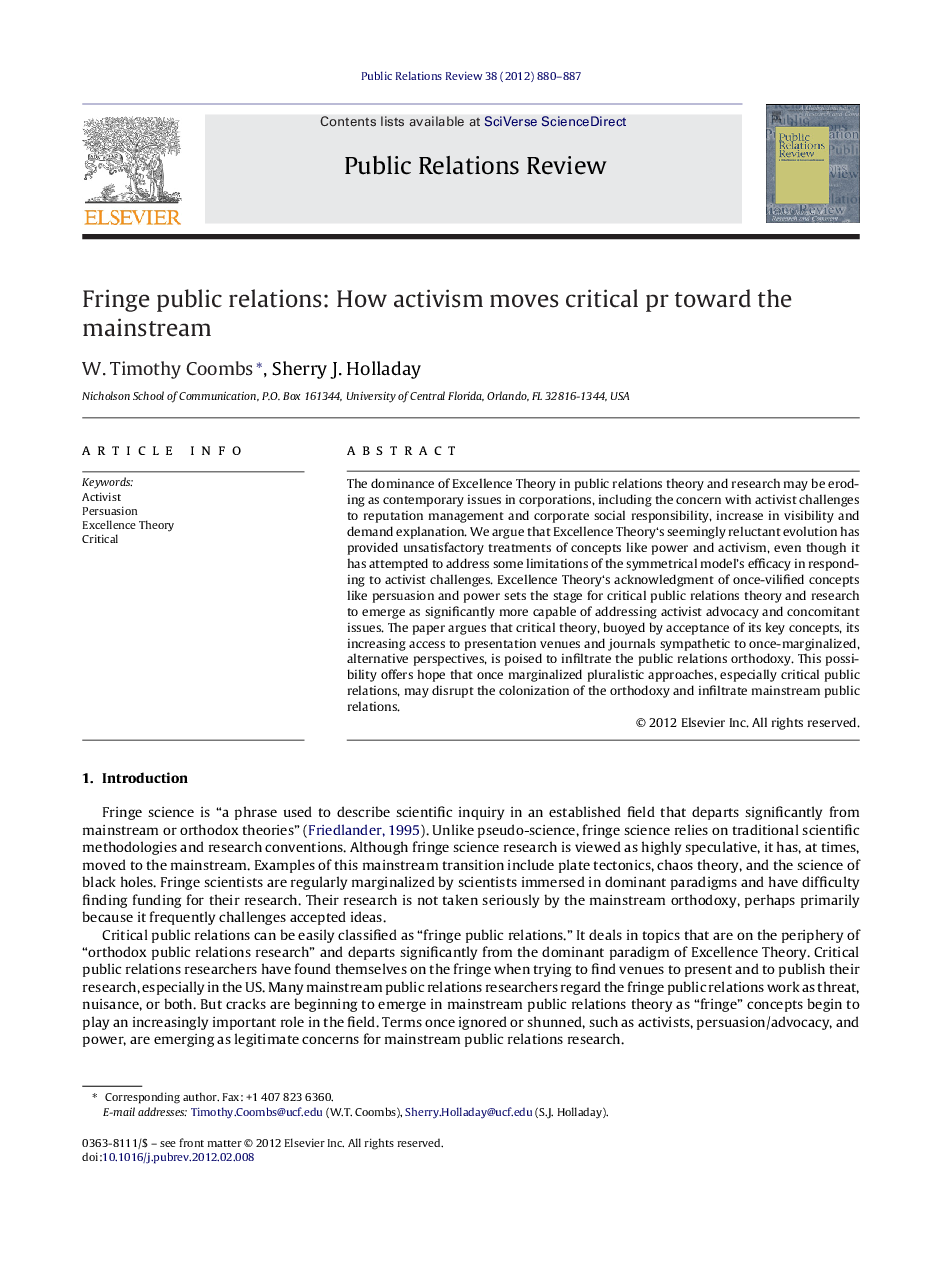| Article ID | Journal | Published Year | Pages | File Type |
|---|---|---|---|---|
| 139236 | Public Relations Review | 2012 | 8 Pages |
The dominance of Excellence Theory in public relations theory and research may be eroding as contemporary issues in corporations, including the concern with activist challenges to reputation management and corporate social responsibility, increase in visibility and demand explanation. We argue that Excellence Theory‘s seemingly reluctant evolution has provided unsatisfactory treatments of concepts like power and activism, even though it has attempted to address some limitations of the symmetrical model's efficacy in responding to activist challenges. Excellence Theory‘s acknowledgment of once-vilified concepts like persuasion and power sets the stage for critical public relations theory and research to emerge as significantly more capable of addressing activist advocacy and concomitant issues. The paper argues that critical theory, buoyed by acceptance of its key concepts, its increasing access to presentation venues and journals sympathetic to once-marginalized, alternative perspectives, is poised to infiltrate the public relations orthodoxy. This possibility offers hope that once marginalized pluralistic approaches, especially critical public relations, may disrupt the colonization of the orthodoxy and infiltrate mainstream public relations.
► We detail the turn in Excellence Theory to include persuasion and activism. ► We highlight the role activism now plays in Excellence Theory. ► We explain how a critical public relations approach is well suited to activism because of the need to consider power and persuasion. ► We speculate on how the increase emphasis on activism can lead to critical public relations research moving from the fringe to greater acceptance.
